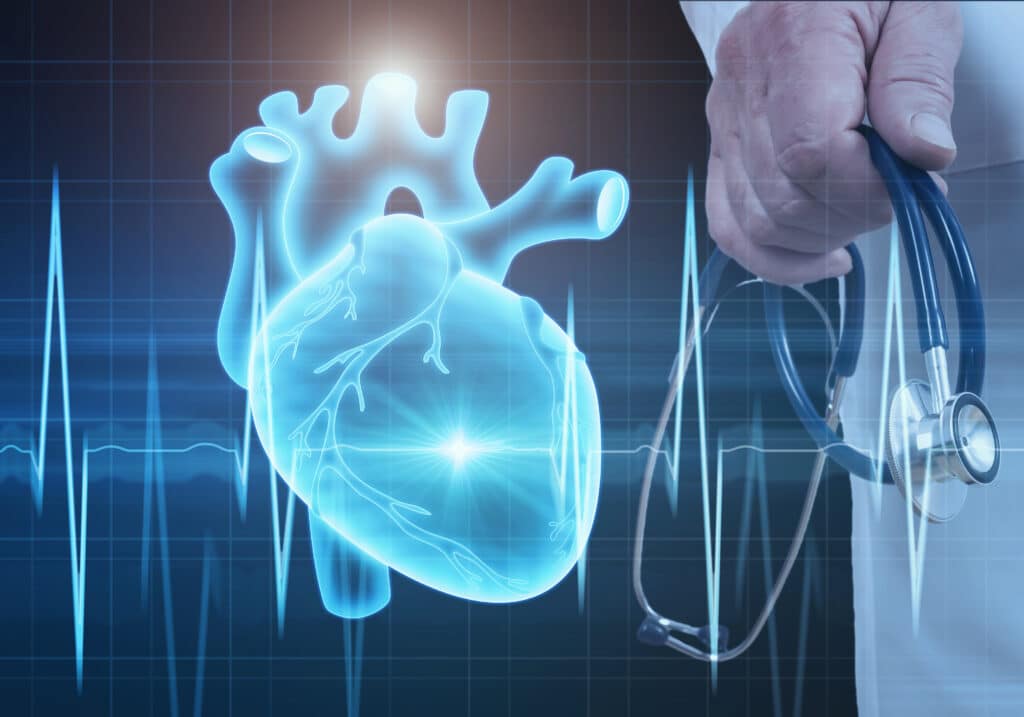Understanding the Relevance of Cardiology in Modern Health Care Providers
Cardiology plays a crucial function in modern medical care, particularly as heart problem proceeds to be the leading reason for death worldwide. Breakthroughs in diagnostics and therapy have transformed person treatment, making it possible for earlier interventions and enhanced results. Additionally, the shift towards preventative cardiology empowers people to handle their health proactively. As innovation proceeds to advance, the assimilation of ingenious options might better redefine cardiology's influence on public wellness, motivating a closer examination of emerging patterns and their effects.
The Prevalence of Heart Illness and Its Impact on Public Health
Although cardiovascular disease continues to be the leading reason of death globally, its impact expands much past specific clients to affect public health and wellness systems and economies. The high occurrence of cardiovascular disease places a significant pressure on medical care sources, necessitating raised funding for treatment, rehab, and prevention programs. Public wellness efforts must resolve danger elements such as obesity, smoking cigarettes, and less active way of lives, which add greatly to the rising incidence of heart conditions.Moreover, the economic concern related to cardiovascular disease is tremendous, encompassing not just direct clinical costs yet likewise indirect expenditures related to shed performance and early death. Communities deal with difficulties in managing these expenses, typically causing variations in health care gain access to and results. As the populace ages and lifestyle-related dangers remain to rise, the seriousness for efficient cardiology interventions ends up being paramount. Addressing heart condition is not just a matter of individual health and wellness however additionally a crucial public wellness top priority.
Advancements in Heart Diagnostics and Imaging Techniques
Recent innovations in cardiac diagnostics and imaging strategies have reinvented the area of cardiology, improving the ability to spot and keep track of cardiovascular disease. Techniques such as heart MRI, CT angiography, and echocardiography have actually ended up being progressively advanced, supplying thorough images of heart frameworks and features. These modalities enable the very early recognition of conditions like coronary artery illness, heart failure, and valvular disorders.Moreover, improvements in non-invasive diagnostics, such as wearable technology and remote surveillance tools, have actually empowered people and doctor. These tools help with real-time monitoring of heart rhythms and other crucial signs, bring about timely interventions. Additionally, expert system is being integrated into imaging analysis, boosting precision and effectiveness in medical diagnosis.
Technologies in Therapy Choices for Heart Conditions
Current advancements in cardiology have actually led to significant advancements in treatment choices for heart disease. These consist of sophisticated surgical techniques that improve procedural outcomes and emerging medicines that use brand-new opportunities for therapy. As the area evolves, these technologies play an essential function in improving patient care and end results.
Advanced Surgical Techniques
Technologies in surgical methods have actually transformed the landscape of cardiology, supplying brand-new wish for people with heart conditions. Minimally invasive procedures, such as catheter-based interventions, have actually significantly minimized recovery times and health center remains. Strategies like robotic-assisted surgery improve precision, allowing cosmetic surgeons to browse complicated physiological frameworks with better accuracy. Advancements in imaging innovation help with real-time visualization throughout procedures, improving results. Transcatheter aortic valve substitute (TAVR) exemplifies a breakthrough in treating aortic stenosis, allowing shutoff replacement without open-heart surgical procedure. Furthermore, hybrid methods that combine catheter-based and surgical approaches offer tailored options for various heart issues. These innovative medical strategies not only enhance client safety yet additionally increase therapy options, highlighting the critical duty of innovation in modern-day cardiology methods.
Arising Drugs and Treatments
As the landscape of cardiology continues to advance, emerging therapies and medications play an essential function in improving treatment choices for heart problems. Innovations such as unique anticoagulants and advanced lipid-lowering agents have actually transformed the monitoring of heart diseases, considerably minimizing patient morbidity and mortality. In addition, the growth of genetics treatments and regenerative medicine uses appealing opportunities for dealing with problems previously regarded permanent. Clinical trials are constantly revealing the efficacy of these therapies, pushing the boundaries of typical treatments. In addition, the integration of digital health and wellness innovations helps with personalized medicine, enabling customized therapy plans based on genetic and lifestyle variables. Collectively, these innovations highlight the dynamic nature of cardiology, improving person end results and redefining requirements of treatment in contemporary healthcare.
The Role of Preventive Cardiology in Patient Treatment
Preventive cardiology plays a necessary role in patient care by concentrating on the recognition of threat elements that add to heart problem. Via way of living alteration strategies and very early discovery strategies, doctor can successfully reduce the occurrence of cardiovascular events - Cardiology care. This proactive technique not only improves patient end results however also promotes long-term health and wellness
Risk Element Recognition
While cardio illness continue to be a leading source of morbidity and death worldwide, effective risk variable recognition serves as a cornerstone of preventive cardiology. Recognizing danger variables such as hypertension, diabetic issues, family members, and hyperlipidemia background is important for early intervention. Healthcare experts use numerous screening approaches to examine these factors, permitting customized precautionary measures. Furthermore, recognizing a patient's lifestyle options, such as cigarette smoking and physical inactivity, further notifies danger assessments. This thorough examination enables medical professionals to develop customized treatment plans focused on mitigating risks. By focusing on threat variable identification, healthcare systems can enhance patient results and lower the general burden of heart diseases, eventually contributing to enhanced public health approaches and resource allotment.
Way Of Living Alteration Methods
A multitude of research studies highlights the critical role of way of living adjustment approaches in decreasing heart disease threat. These techniques include dietary changes, enhanced exercise, smoking cessation, and weight administration. By embracing a heart-healthy diet regimen abundant in fruits, vegetables, whole grains, and lean healthy proteins, people can reduce cholesterol levels and high blood pressure. Routine exercise strengthens the heart and improves total cardiovascular health and wellness. Furthermore, stopping cigarette smoking substantially minimizes the danger of cardiovascular disease and improves recovery prices for those with status quo. Weight monitoring even more adds to cardio wellness by alleviating various other risk factors such as diabetes and high blood pressure. Implementing these way of life changes not only promotes private wellness however additionally acts as a cornerstone of preventive cardiology in person treatment.
Early Detection Methods
Lifestyle modifications greatly contribute to minimizing cardiovascular disease dangers, however they are most efficient when combined with early detection techniques. Preventative cardiology highlights the value of identifying potential heart concerns prior to they rise into severe problems. Strategies such as blood pressure surveillance, cholesterol screening, and advanced imaging technologies like echocardiograms play vital duties in evaluating cardiovascular wellness. Biomarkers and hereditary testing additionally improve the precision of very early detection, permitting for tailored precautionary approaches. Normal heart danger assessments empower doctor to step in proactively, possibly preventing cardiovascular disease and strokes (Cardiologist near me). By incorporating these early detection techniques into routine care, people can take advantage of timely way of life treatments and targeted therapies, inevitably improving outcomes and enhancing lifestyle
Integrating Technology Into Cardiology Practices
As developments in modern technology proceed to improve numerous areas, the assimilation of innovative tools and systems into cardiology practices has ended up being vital for improving person treatment and results. Telemedicine systems allow cardiologists to check clients from another location, enhancing accessibility to care while lowering the problem on medical care facilities. Wearable gadgets, such as smartwatches, make it possible for continual heart price monitoring, informing both doctors and individuals to potential problems in real-time. Furthermore, synthetic knowledge (AI) is being made use of to evaluate large amounts of heart information, aiding in very early diagnosis and individualized treatment strategies. Advanced imaging methods, consisting of 3D echocardiography, improve visualization of heart structures, resulting in extra exact treatments. Electronic health and wellness records why not try these out (EHRs) improve person info monitoring, making certain that cardiologists have immediate accessibility to vital information. With each other, these technical developments are changing cardiology, promoting aggressive administration and improved health and wellness outcomes for clients with cardiovascular problems.
The Importance of Client Education And Learning and Involvement
Individual education and interaction play a critical role in the monitoring of cardio health. By equipping clients with understanding about their conditions, therapy options, and way of living adjustments, doctor equip people to take an active duty in their treatment. This proactive strategy can cause improved adherence to recommended medications, nutritional adjustments, and workout routines, ultimately reducing the threat of complications.Engagement additionally fosters a solid patient-provider relationship, motivating open communication and depend on. When patients feel educated and included, they are most likely to voice worries and ask questions, which can lead to far better professional outcomes. In addition, instructional sources, such as workshops or electronic systems, can improve understanding and promote self-management approaches. Generally, prioritizing client education and involvement is vital for boosting cardiovascular health and wellness, enhancing lifestyle, and decreasing medical care costs connected with cardiovascular conditions.
Future Patterns in Cardiology and Their Potential Effect

Regularly Asked Questions
What Way Of Life Adjustments Can Reduce Heart Problem Danger?
The present question addresses way of life changes that can considerably reduce heart disease danger. Cardiology Jupiter. Adopting a well balanced diet plan, involving in normal physical activity, preserving a healthy weight, taking care of anxiety, and Get More Info staying clear of cigarette can especially boost cardiovascular health and wellness
How Can I Identify Early Indicators of Heart Problems?
Acknowledging very early indicators of heart problems entails monitoring symptoms such as upper body pain, lack of breath, exhaustion, and uneven heart beat. Timely awareness of these indicators can motivate needed medical examination and intervention for far better outcomes.
What Are the Differences Between Cardiologists and Cardiac Surgeons?
The distinctions in between cardiologists and cardiac surgeons hinge on their functions; cardiologists mostly manage and detect heart disease with non-invasive approaches, while cardiac doctors execute surgical procedures to deal with architectural heart concerns. Each plays a crucial, unique duty.

Just how Frequently Should I Obtain My Heart Health And Wellness Checked?
The regularity of heart medical examination Bonuses differs based on individual risk elements. Typically, adults must undertake evaluations each to two years, while those with status quo might call for more regular analyses as suggested by health care experts.
What Function Does Genetics Play in Cardiovascular Disease Danger?
Genetics greatly affects cardiovascular disease risk, with familial patterns showing acquired conditions. Certain genetics can incline individuals to hypertension, cholesterol problems, and various other cardio troubles, highlighting the significance of genetic testing in reviewing heart health. Heart illness continues to be the leading cause of death globally, its impact expands far beyond individual patients to influence public health systems and economic situations. Public health and wellness efforts must address risk factors such as weight problems, cigarette smoking, and inactive lifestyles, which add greatly to the rising incidence of heart conditions.Moreover, the financial worry associated with heart disease is immense, encompassing not just straight medical expenses however likewise indirect costs associated to lost performance and early mortality. Preventive cardiology plays a vital role in patient treatment by focusing on the recognition of threat aspects that add to heart condition. Man-made knowledge (AI) and maker understanding are improving diagnostics and client tracking, making it possible for early detection of heart diseases. The distinctions between cardiologists and cardiac specialists exist in their functions; cardiologists mainly handle and identify heart problems via non-invasive approaches, while cardiac specialists do medical procedures to fix structural heart concerns.